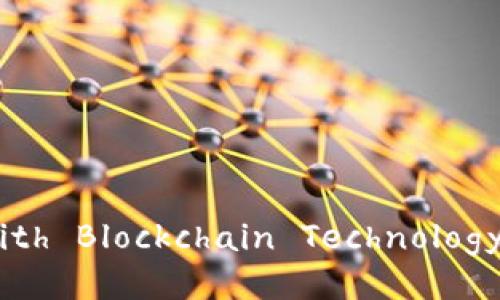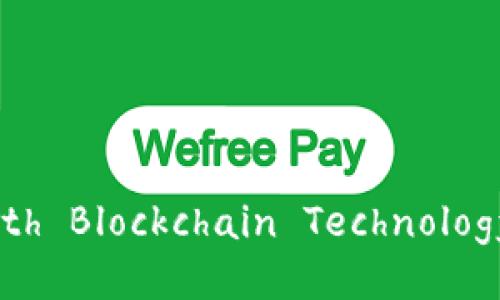### Empowering Gaming with Blockchain Technology: A Comprehe
2025-06-24 19:03:14
In recent years, the gaming industry has experienced monumental changes, with emerging technologies reshaping the way games are developed, played, and monetized. One of the most transformative technologies in this space is blockchain. This decentralized ledger technology offers unique capabilities that can enhance gaming experiences, providing new opportunities for developers and players alike. This article will explore the intersection of blockchain and gaming, dissecting how blockchain empowers games, its implications, benefits, challenges, and future prospects.
Understanding Blockchain Technology in Gaming
Blockchain is a distributed digital ledger technology that records transactions across multiple devices in a secure, transparent, and immutable manner. In the context of gaming, blockchain can facilitate transactions, ownership verification, and the creation of in-game economies.
The fundamental components of blockchain include decentralization, transparency, security, and anonymity. When applied to gaming, these components can revolutionize traditional game mechanics and economic models.
How Blockchain Empowers Gaming

Blockchain technology empowers gaming in several crucial ways:
- True Ownership: With blockchain, players can truly own their in-game assets, such as characters, skins, and weapons. These assets can be tokenized and stored on a blockchain, allowing players to buy, sell, and trade them securely outside the confines of a game.
- Interoperability: Blockchain allows for the possibility of interoperability between different games and platforms. Players can potentially transfer their assets across various gaming environments, enhancing the overall gaming experience.
- Decentralized Economies: Blockchain enables developers to create decentralized economic systems where players can earn tokens by participating in games. These tokens can then be used for in-game purchases or traded for real-world money.
- Innovative Game Mechanics: The programmability of blockchain through smart contracts allows developers to create new game mechanics, ensuring that gameplay is not only entertaining but also financially rewarding.
Benefits of Blockchain in Gaming
The integration of blockchain in gaming offers numerous benefits:
- Security: Due to the cryptographic nature of blockchain, user data and transactions are kept secure from hacks and fraud, which has been a growing concern in the gaming industry.
- Transparency: Transactions on blockchain are transparent and traceable, providing players and developers with a clear view of the game's economy and asset ownership.
- New Revenue Streams: Blockchain can open new avenues for monetization, such as play-to-earn models, which incentivize players to engage with the game more fully.
- Community Engagement: Blockchain technology fosters community involvement through decentralized governance, allowing players to have a say in game development and updates.
Challenges and Considerations

Despite its potential, integrating blockchain into gaming is not without challenges:
- Scalability: Most blockchains are not currently able to handle the high transaction volume associated with modern games, leading to delays and higher costs.
- User Experience: Many users are not familiar with how blockchain works. Complexities associated with wallets and token management could deter casual gamers.
- Regulatory Issues: As with any technology involving cryptocurrency, regulatory scrutiny is a concern. Developers must navigate varying regulations across different jurisdictions.
- Market Volatility: The value of in-game tokens can fluctuate dramatically, which may affect players' experiences and monetary investments in games.
Future Prospects of Blockchain in Gaming
Looking ahead, the future of blockchain and gaming seems promising:
- Increased Adoption: As more developers explore blockchain technology, we are likely to see a surge in blockchain-based games, attracting a wider audience.
- Enhanced User Experience: Innovations to improve user experience, such as simpler wallet integrations, will facilitate broader acceptance of blockchain in gaming.
- Collaboration with Traditional Models: The gaming industry may see a fusion of traditional and blockchain gaming models, creating hybrid ecosystems that can cater to a wider audience.
- Growth of Decentralized Autonomous Organizations (DAOs): DAOs may play a significant role in the governance of blockchain games, empowering communities to make decisions collaboratively.
Frequently Asked Questions (FAQs)
1. What are some examples of blockchain games?
Several notable games have successfully integrated blockchain technology, offering unique gameplay and earning mechanics. Notable examples include:
- Axie Infinity: A play-to-earn game allowing players to breed, battle, and trade fantasy creatures called Axies. It utilizes Ethereum-based tokens to facilitate transactions.
- Decentraland: A virtual reality platform built on the Ethereum blockchain where players can buy, sell, and build on virtual land parcels, creating a user-driven economy.
- Gods Unchained: This trading card game imparts true ownership of cards to players, allowing them to trade or sell them outside the game environment.
These examples highlight how blockchain can redefine gaming mechanics and player interactions.
2. How does blockchain improve in-game economies?
Blockchain positively impacts in-game economies by ensuring transparency, security, and true ownership of assets:
In-game economies often rely on a centralized system where a developer decides the value of assets. However, with blockchain, transactions and ownership are recorded on a decentralized ledger, providing clarity to players.
Tokenization allows assets to have real-world value, leading to the creation of secondary markets where players can trade or sell their items. This encourages engagement, as players can earn real income through gameplay.
Moreover, the use of smart contracts ensures that developers can implement complex economic models, such as royalties for creators whenever a traded asset changes hands. Such mechanisms enrich the in-game economy and incentivize players. By integrating blockchain, game developers can build more resilient and thriving in-game economies that adapt to player behaviors and market dynamics.
3. What is the play-to-earn model and how does it work?
The play-to-earn (P2E) model is an innovative approach that allows players to earn real assets or cryptocurrencies through in-game activities. Unlike traditional gaming models that rely on purchases and subscriptions, P2E games reward players for their time and effort.
In a P2E game, players typically engage in gameplay mechanics such as completing quests, winning battles, or crafting items. As players complete in-game tasks, they earn tokens that can be traded for cryptocurrencies or traditional currency.
For example, in Axie Infinity, players can earn Smooth Love Potions (SLP) by battling their Axies and then trade those tokens on exchanges. This creates a direct financial incentive for players to invest their time in the game.
In addition to providing economic benefits, P2E models foster community engagement, promoting social interactions and competition among players. As the P2E concept evolves, we can expect a greater focus on sustainability and fairness in the distribution of rewards.
4. Are there any risks associated with blockchain gaming?
Yes, there are several risks associated with blockchain gaming that both players and developers need to be aware of:
- Market Volatility: The value of blockchain-based assets can be highly volatile, leading to potential losses for players if the token's value crashes.
- Regulatory Challenges: The legal landscape for cryptocurrencies and blockchain technology is constantly evolving. Developers must navigate the complexities of regulations in their respective regions.
- Security Concerns: While blockchain technology is often viewed as secure, vulnerabilities exist, such as smart contract bugs or hacking incidents that can lead to loss of assets.
- Player Burnout: If the focus on earning money overshadows enjoyment, players may experience burnout or disengagement from the core gameplay experience.
Being aware of these risks is crucial for both players considering investing time or money into blockchain gaming and developers aiming to create sustainable games.
5. How can traditional gaming companies benefit from adopting blockchain?
Traditional gaming companies can gain numerous advantages by adopting blockchain technology, enhancing their operations and player experiences:
- Improved Security and Trust: With blockchain's transparent and immutable nature, players can trust that their transactions and assets are secure and verifiable.
- New Business Models: Blockchain opens up possibilities for innovative revenue streams, such as token sales, in-game asset trading, and royalties.
- Enhanced Player Engagement: By providing true ownership of in-game assets, players feel a stronger connection to their experiences, enhancing loyalty and retention.
- Community Governance: Blockchain can enable decentralized governance models, empowering players to participate in decision-making regarding game development and updates.
By embracing blockchain, traditional gaming companies can transition into the future, remaining competitive and relevant in an evolving industry landscape.
In conclusion, the convergence of blockchain technology and gaming offers exciting possibilities that can redefine experiences for both developers and players. As this technology continues to evolve, it is essential for stakeholders to navigate its complexities thoughtfully while realizing its potential benefits.